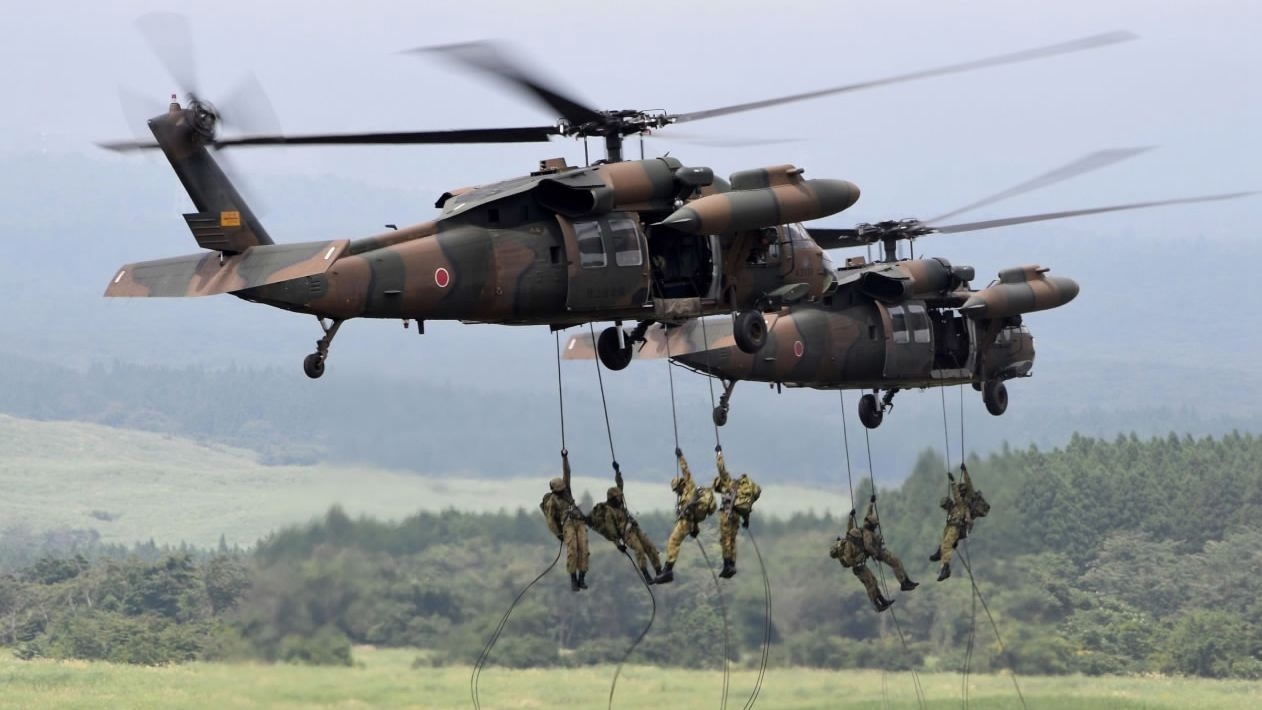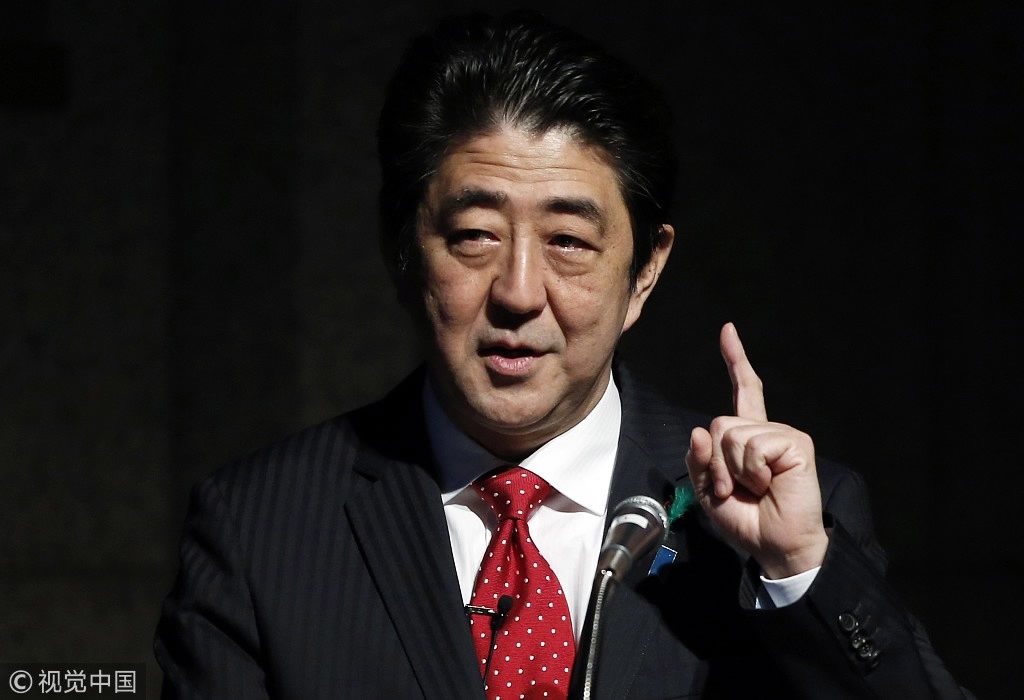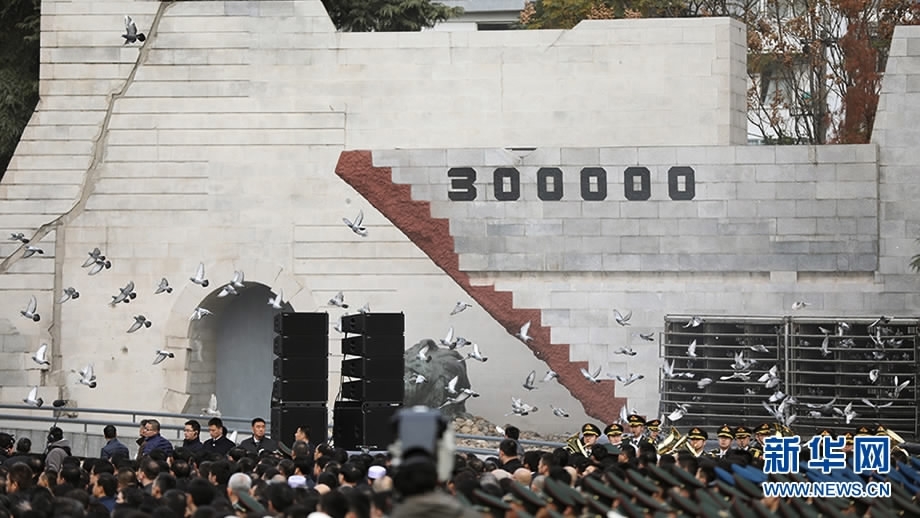
Opinions
18:47, 28-Dec-2017
Opinion: Japan's increased defense budget a security dilemma
Guest commentary by Jia Xiudong

The Japanese government released details of a record defense budget for the fiscal year of 2018 on December 22, 2017. The 5.19 trillion yen (46 billion US dollars) defense budget, the largest ever in total, represents a 1.3 percent increase from the previous year and marks an annual rise for the 6th year in a row in military spending under Prime Minister Shinzo Abe.
Japanese officials cited the missile and nuclear programs of the Democratic People’s Republic of Korea (DPRK) to justify the increase of Japanese spending on missile defense systems, cruise missiles, and other advanced weapons. The DPRK has been a convenient security concern in the past few years for the Abe administration pursuing a permanent change to Japan’s post-World War II security and foreign policy.
Japan’s post-World War II pacifist constitution stipulates in Article 9 that “the Japanese people forever renounce war as a sovereign right of the nation and the threat or use of force as means of settling international disputes,” and that in order to accomplish the aim of the preceding paragraph, “land, sea, and air forces, as well as other war potential, will never be maintained. The right of belligerency of the state will not be recognized.” To a large extent, Article 9 of the Constitution has served as a cornerstone of Japan maintaining a post-World War II pacifist image, mending ties with its Asia neighbors, and thus focusing its attention on economic prosperity.
However, the stipulation of the article is not acceptable to Abe, whose long-held dream has been to rewrite the pacifist constitution. Abe would like to “make Japan great again,” or to “bring back a strong Japan,” in his own words, when he addressed an American audience on his first trip to Washington since taking office in December 2012. By a “strong Japan,” Abe means not only economic recovery but more importantly also strengthening Japanese political, security and military statuses in the world so that Japan can become an independent geopolitical power in the Asia-Pacific region and beyond. The pacifist constitution remains a hurdle in the quest for his goals.

Japanese Prime Minister Shinzo Abe. /VCG Photo
Japanese Prime Minister Shinzo Abe. /VCG Photo
To achieve his aims, Abe has turned several issues into his tools. First, the perceived threat from DPRK’s nuclear and missile programs remains handy when Abe talks about the need to free up the hands of Japan’s Self-Defense Forces. Second, China’s growing economic clout and military strength always loom large in Abe’s world vision, where he views China as a strategic competitor and a roadblock on the path to a “strong Japan”. Third, successive American administrations, including President Trump, keep asking Japan to play a greater role in supporting the US-Japan alliance, thus providing the perfect reason for Japan to beef up its own military.
With a nod from the US, Abe has taken every opportunity possible in his premiership to reinterpret the pacifist constitution to allow Japanese forces to exercise the right of collective defense, discard a nearly half-century ban on the export of weapons and military hardware, and acquire more advanced weapons and equipment including some offensive weapons which Japan consistently calls “defensive.”
More alarming to its Asian neighbors is Abe’s attachment to his conservative, revisionist view of World War II, denying Japan’s aggressive actions and the horrors inflicted, such as the most infamous atrocity of the Rape of Nanking leaving 300,000 Chinese dead and the sex slavery involving hundreds of thousands of women known as “comfort women.” Abe has used various tricks, including vague and ambiguous references to past misdeeds of Japan, to entail inadequate recognition or even outright denial of Japanese aggression. He even stated that “the definition of what constitutes an ‘invasion’ has yet to be established in academia or in the international community.” The Abe cabinet has tried to whitewash or beautify Japan’s wartime crimes.
It was no surprise then that Japan has used leverage to try to hamper UNESCO’s decision in October last year to include China-submitted documents about the 1937 Nanking Massacre in its Memory of the World list. Japan has been also tried to prevent UNESCO from reviewing nominations for “Voices of the ‘Comfort Women’” and “Documentation on ‘Comfort Women’ and Japanese Army discipline.” As a show of displeasure at UNESCO decisions, Japan withheld its 4.4 billion yen contributions to UNESCO.

China holds a memorial ceremony for victims killed in China's War of Resistance Against Japanese Aggression in Nanjing, December 13, 2017. /Xinhua Photo
China holds a memorial ceremony for victims killed in China's War of Resistance Against Japanese Aggression in Nanjing, December 13, 2017. /Xinhua Photo
Abe and his cabinet dominated by conservatives have not been able to squarely face historical facts about Japanese wartime aggression. History has shown that those Japanese politicians who acknowledge the country’s war crimes tend to work towards peace, stability and improved relations with Japan’s Asian neighbors, especially China and the Republic of Korea, while those denying or even whitewashing Japanese wartime misdeeds often intend to damage those Asian ties.
Without clear, sincere and consistent remorse over its past, Japan will not be able to allay its Asian neighbors’ concerns over its security and foreign policy orientations, and the continued rise in Japan’s national defense budget will only fan the mistrust between the country and its neighbors. A Japan that imagines and plays up all sorts of threats it faces can lead to a security competition that will then lead to a kind of security dilemma for itself and others. So it does not help the nation’s standing when Japan refuses to “learn from history” while continuing to embark on a path of remilitarization, one that is dangerous and heading towards a dead end.
(Jia Xiudong is a senior research fellow of China Institute of International Studies. The article reflects the author’s opinion, not necessarily the views of CGTN.)

SITEMAP
Copyright © 2018 CGTN. Beijing ICP prepared NO.16065310-3
Copyright © 2018 CGTN. Beijing ICP prepared NO.16065310-3